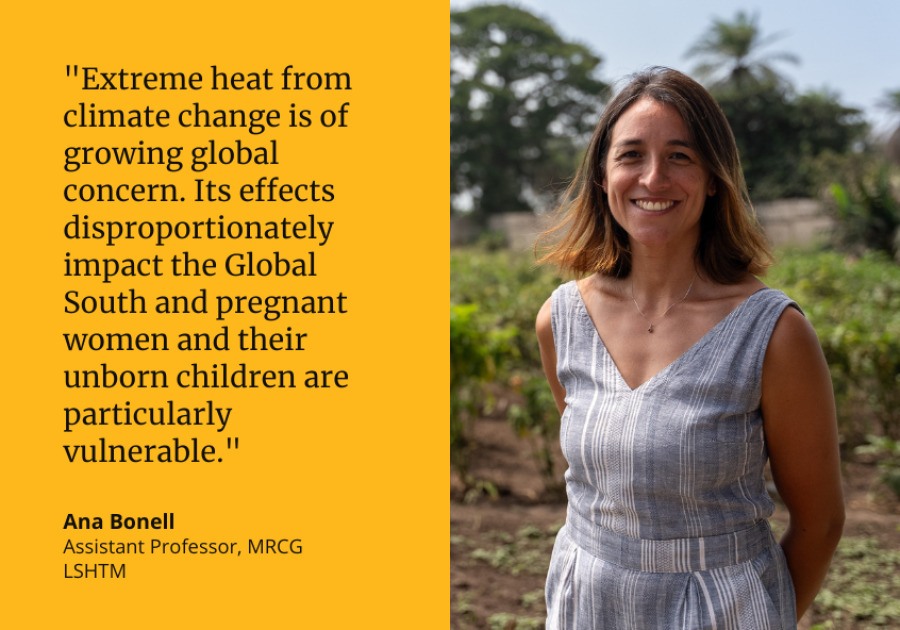£1.4m funding to identify mechanisms behind impacts of heat stress on pregnant women
20 December 2023 London School of Hygiene & Tropical Medicine London School of Hygiene & Tropical Medicine https://lshtm.ac.uk/themes/custom/lshtm/images/lshtm-logo-black.png
Researchers from the Medical Research Council Unit The Gambia (MRCG) at the London School of Hygiene & Tropical Medicine (LSHTM) will continue to evaluate the mechanisms behind the acute and chronic effects of extreme heat on expectant mothers and their unborn children, as part of a £1.4m grant from the Wellcome Trust.
Environmental heat exposure during pregnancy can cause nausea, vomiting, headaches, dizziness and fatigue in expectant mothers, and predicts multiple adverse birth outcomes, including a greater risk of stillbirth across affected populations globally.
During pregnancy, changes occur in the body that affect its ability to regulate temperature. The challenge to maintain a steady temperature as a pregnant woman working or living in extreme heat is one of many factors that could be implicated in the adverse birth outcomes recorded but further research is needed to determine which pathways may be responsible.
Dr Ana Bonell, an Assistant Professor based at MRCG, said:
"Extreme heat from climate change is of growing global concern. Its effects disproportionately impact the Global South and pregnant women and their unborn children are particularly vulnerable.
“Our study aims to understand the biological and physiological pathways that may be affected by extreme heat exposure, in order to inform real-world safety guidance and develop evidence-based adaptation interventions."
Dr Bonell, alongside Professor Andrew Prentice and Dr Bubacarr Bah at LSHTM, will lead the project, supported by researchers from the University of Cambridge and University of Thessaly. Their funding is part of a full £2m award from the Wellcome Trust.
Over the course of the four-year project, the team will look to collate and analyse global evidence for maternal responses to heat exposure, to identify the specific biological pathways affected and to determine the thresholds for which heat stress results in physiological changes.
Utilising wearable devices, placental samples and neurological assessments, the team also plan to conduct a large-scale study of over 700 pregnant women working in three distinct environments affected by extreme heat across The Gambia. The study will expand on the team's previous research, which found that the unborn children of women working in fields in extreme heat can show signs of strain before their mothers are affected.
Read more on the Wellcome Trust website.
LSHTM's short courses provide opportunities to study specialised topics across a broad range of public and global health fields. From AMR to vaccines, travel medicine to clinical trials, and modelling to malaria, refresh your skills and join one of our short courses today.